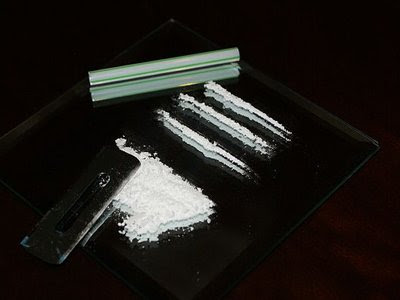Rhino horns poach gold cocaine
Rhino horns poach gold cocaine.Home to 90 percent of the rhinos in Africa and the largest rhino population in the world, rhino poaching in South Africa has reached record proportions, with 50 percent of rhinos being taken from within Kruger National Park.
Whenever there is a market, someone is willing to provide the goods, even illegally. Touted as a cure for several ailments, rhino horn is in such high demand that its street value "has soared to about $65,000 a kilogram, making it more expensive than gold, platinum and in many cases cocaine," says Reuters UK.
To meet demand says the national park service, a record number of 443 rhinos were killed for their horns in South Africa in 2011. This shocking statistic stands more starkly when compared to statistics in 2007. In that year, the number of rhinos poached in South Africa was thirteen. In 2008, the number jumped to 83, then 123 by 2009. By 2010, 333 rhinos were killed with a further 443 rhinos losing their lives to poachers this year. Almost 1,000 rhinos in four years. Why the sudden explosion?
Conservationists were befuddled by the increased demand for rhino horn. "We couldn't understand what was happening at first," said Steven Broad of the conservation group, TRAFFIC. "Then we noticed unusual demand from Vietnam," Broad told the UK's Guardian newspaper back in November.
Increased demand it appeared, was fueled by the rumor from a Vietnamese politician who claimed that his cancer had been cured by ingesting powdered rhino horn. Despite no scientific evidence to support his claims, the rumor went viral, raising prices for rhino horn tangibly. It was a death knell for Vietnamese rhinos and in Oct. 2011, conservationists reported that the last known Javan rhino in Vietnam had died. With Vietnam's rhinos extinct a full out assault on South African rhinos commenced in earnest.
Supporting the poachers are international crime syndicates who take advantage of men willing to risk their lives for small rewards. For poachers this pittance appears a huge sum, but it is the syndicates who pocket the big bucks by selling the rhino horns for top dollar via organized crime rings across Asia.
Although efforts in the country have been stepped up to combat the smuggling and selling of rhino horn within Vietnam, law enforcement remains woefully inadequate. In September, Vietnamese officials visited South Africa in an effort to promote cooperation between the two countries on rhino horn smuggling. With three of the five species of rhinoceros critically endangered, South Africa is in a race against the clock to secure the preservation of their own rhinos.
According to Rhino Conservation.org, "illegal rhino horn is highly sought after for use in traditional medicines in China and Vietnam, despite the fact rhino horn has been extensively analyzed and contains no medicinal properties." Of further concern says the organization is the increasing Chinese footprint being left in South Africa which "has placed the demand for rhino horn perilously close to the supply, and [...seen...] a flood of Chinese weapons in the region."
South Africa's rhino isn't the only animal paying with its life to satisfy human demand. TRAFFIC reports that 2011 was "annus horribilis" for African elephants with the most recent case being the discovery of 727 ivory pieces discovered on December 21. Concealed inside a container at the port of Mombasa, Kenya, and destined for Asia, the find was one of several this year pronouncing a sharp rise in ivory trafficking since 2007.
In 2010 large-scales seizures of illegal ivory products numbered six, weighing around 10 tonnes said TRAFFIC. Yet in 2011, "a conservative estimate of the weight of ivory seized in the 13 largest seizures in 2011," they said, "puts the figure at more than 23 tonnes" probably representing "some 2,500 elephants."
The act of poaching is a brutal and inhumane one, with animals often left to bleed to death after having their horns cut off or tusks removed. Poaching does have one commonality, Asia, and its desire for traditional Chinese medicine which drives demand for rhino horns, shark fins, ivory, tiger bones, antelope, buffalo, deer antlers, testicles and os penis of the dog and bear or snake bile, to name just a few. It is because of this demand says the Guardian, that "the Indochinese tiger, Asian elephant, saola, Tonkin snub-nosed monkey and Siamese crocodile are all on the brink of vanishing."
The wants and desires of one continent is costing South Africa in more ways than one. Facing hi-tech and well-funded crime syndicates, even on its protected animal preserves, is costing the lives of animals and those trying to protect them. Dr. Joseph Okori, the World Wildlife Fund's African Rhino Programme coordinator, recently told the Environment News Service, that "in order to save rhinos from extinction, the criminal syndicates operating between South Africa and Vietnam must be uncovered and shut down for good."
Unfortunately this will do little to alleviate demand, and with mainland China's growing economy and population, the fear is that it will continue to climb.



Tidak ada komentar:
Posting Komentar